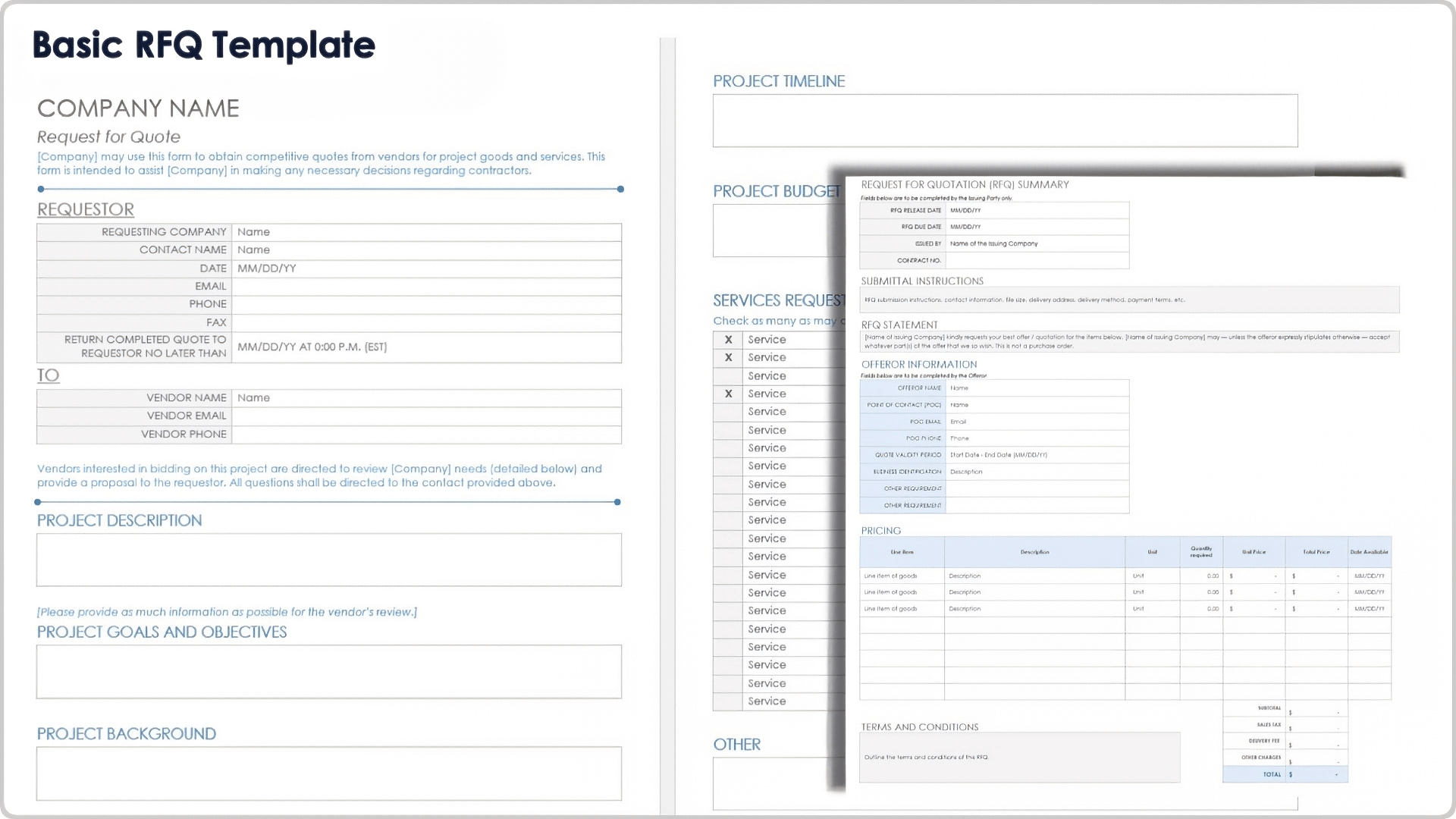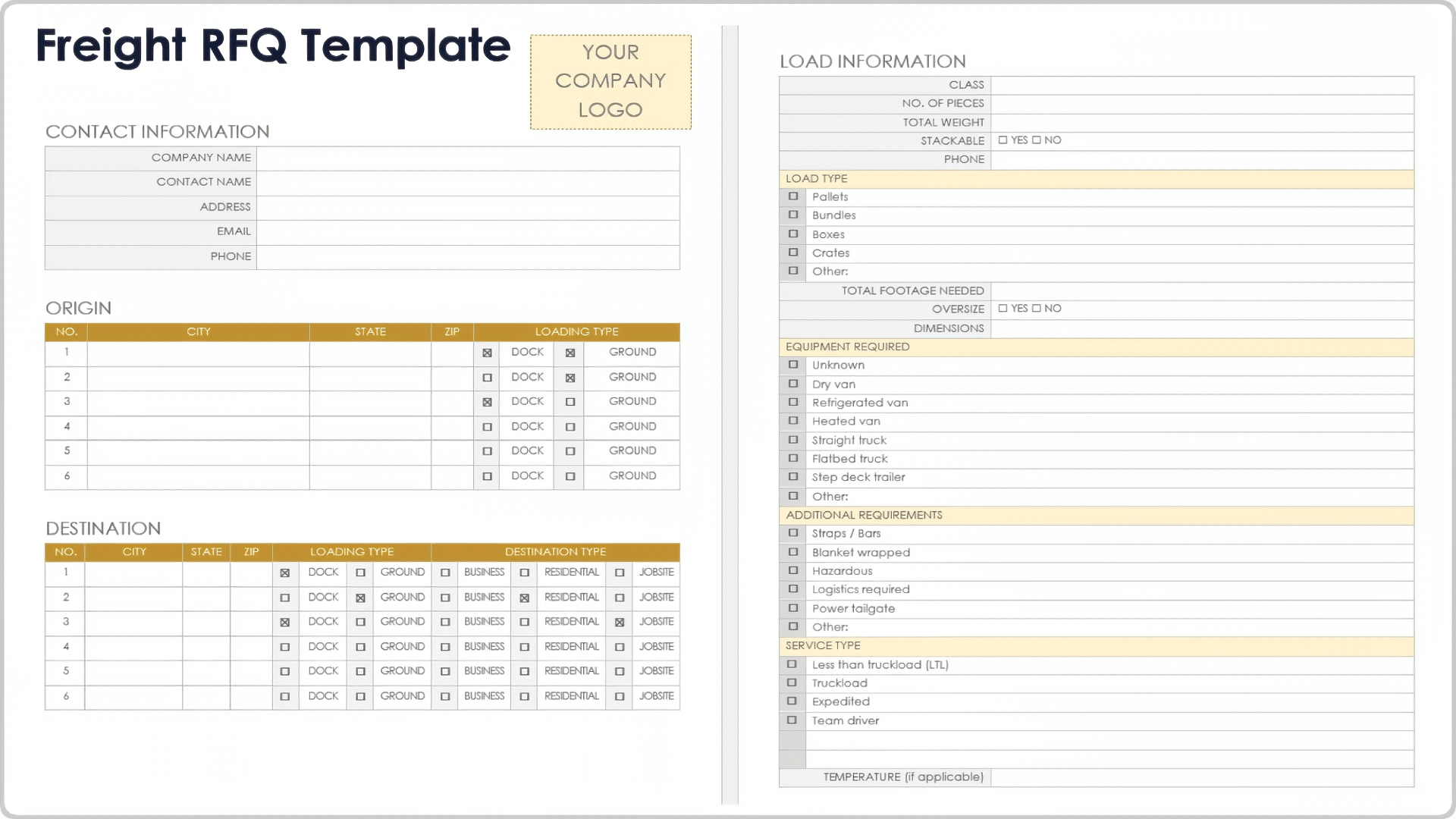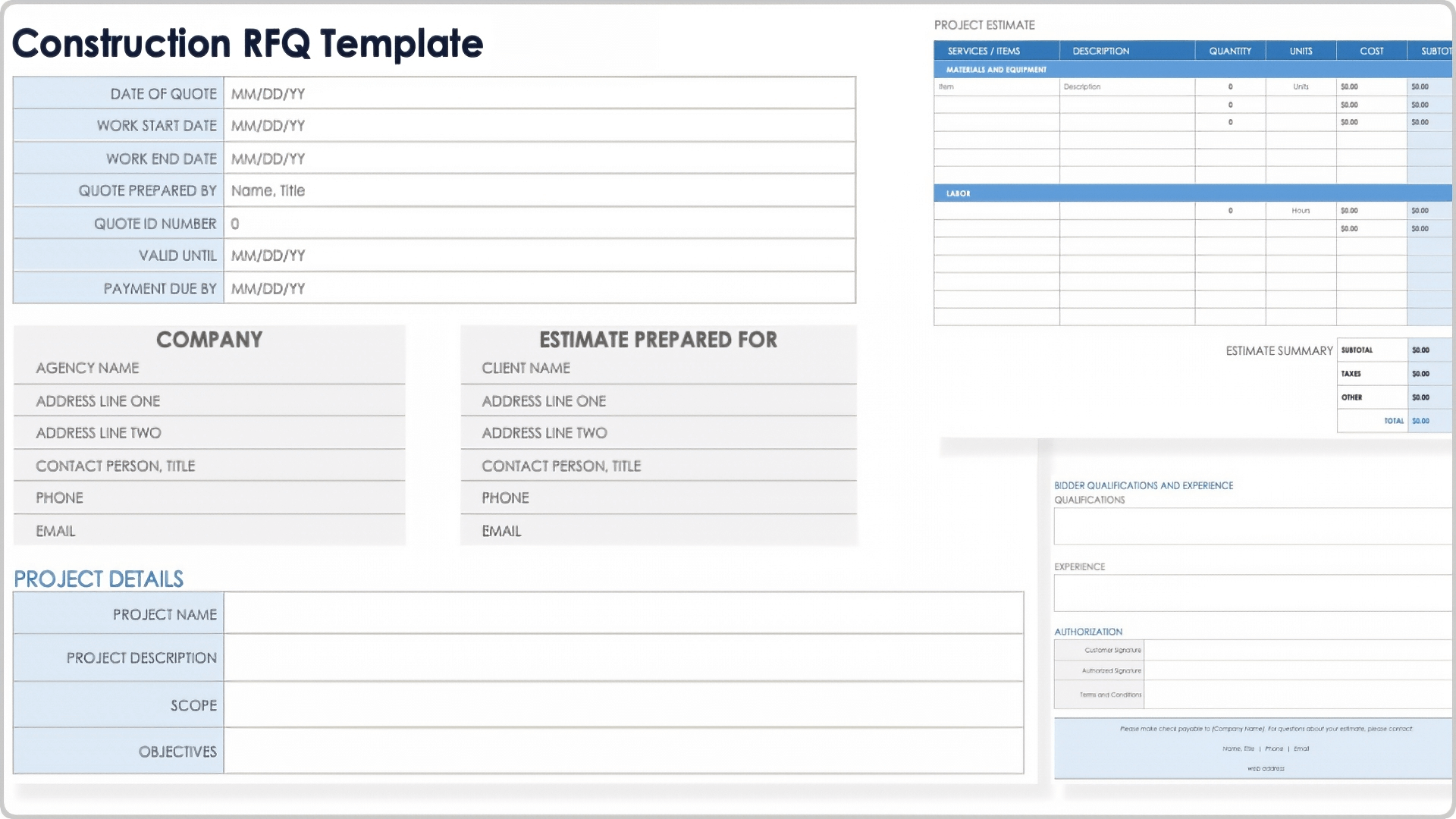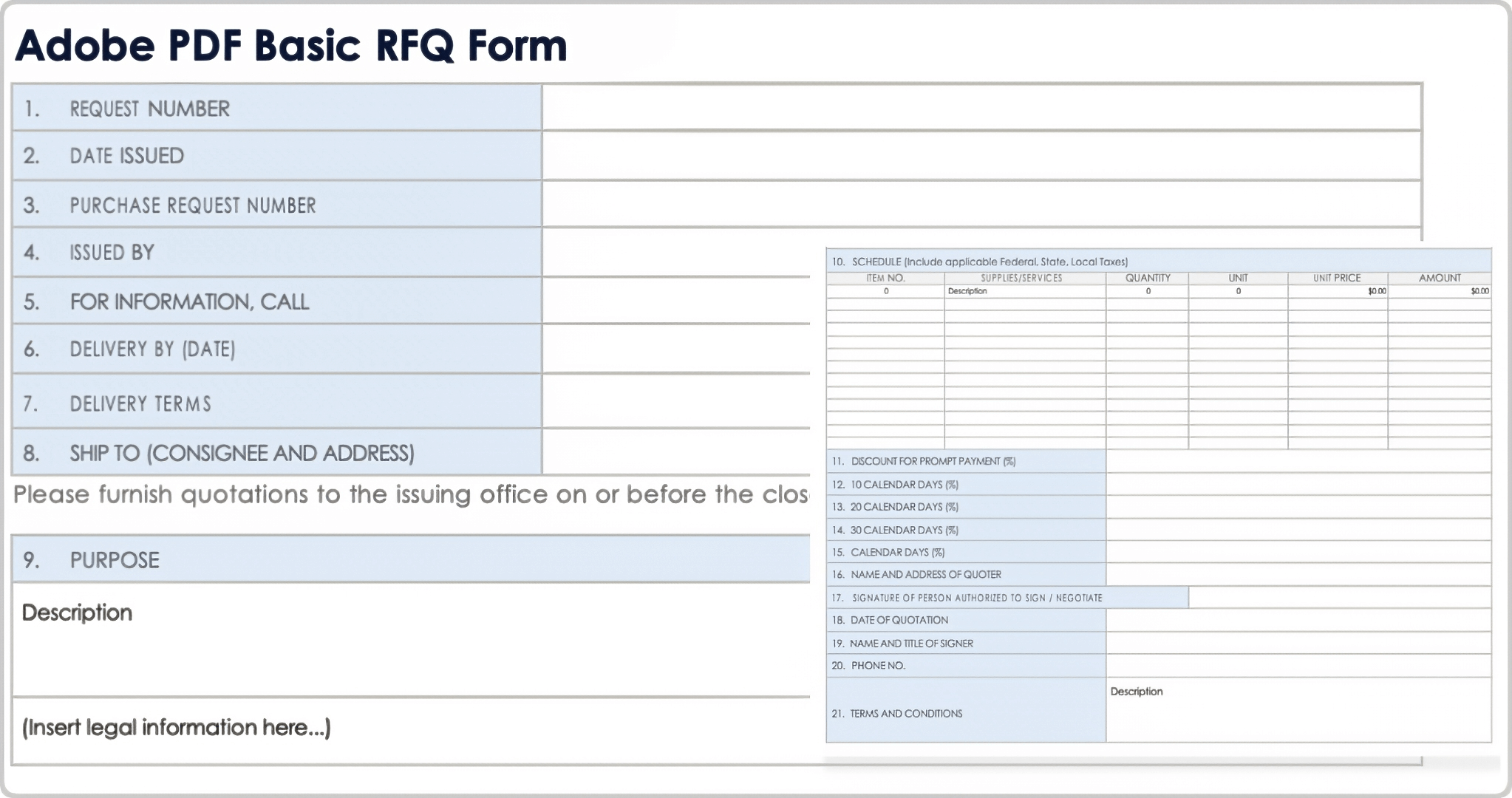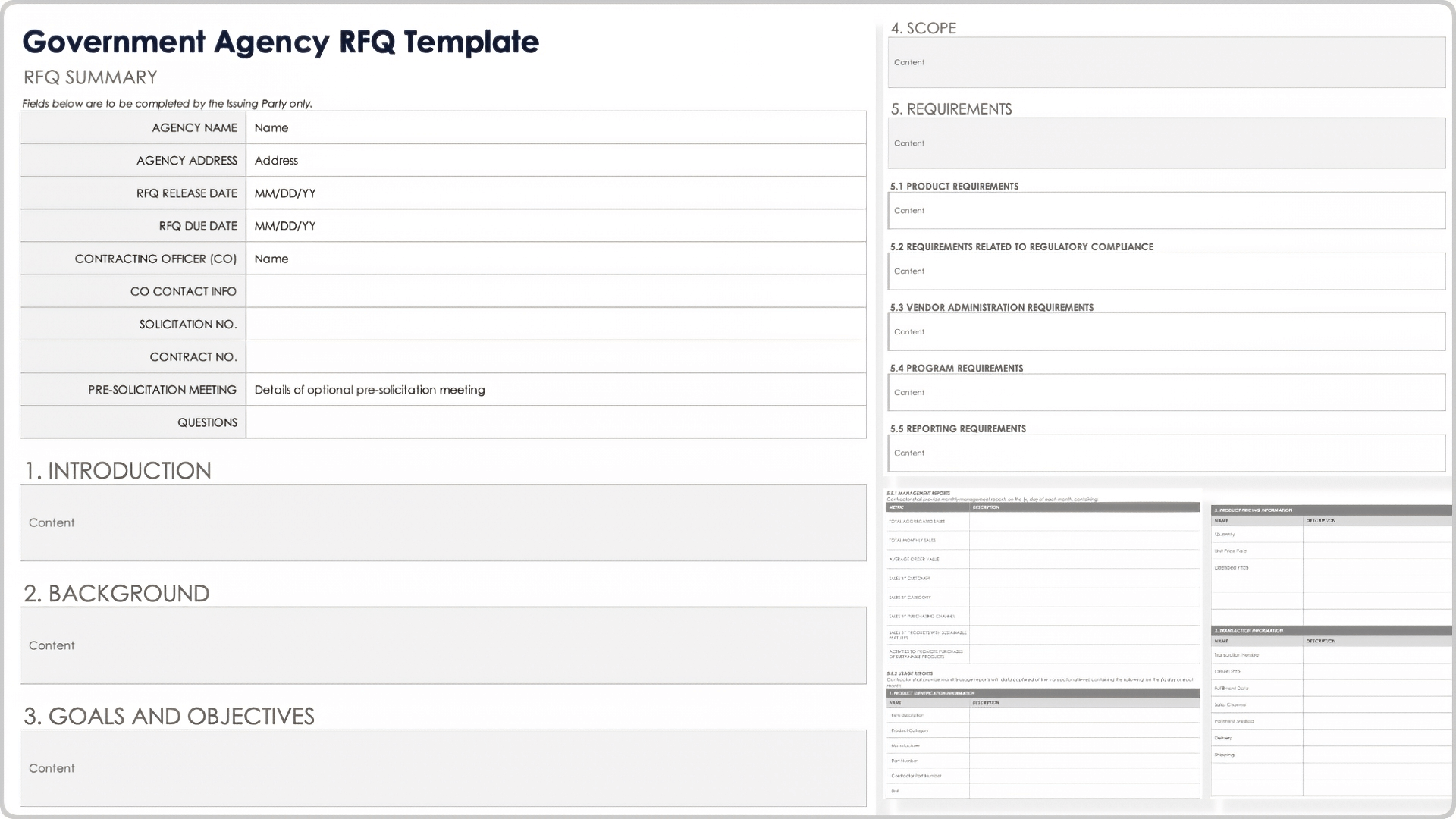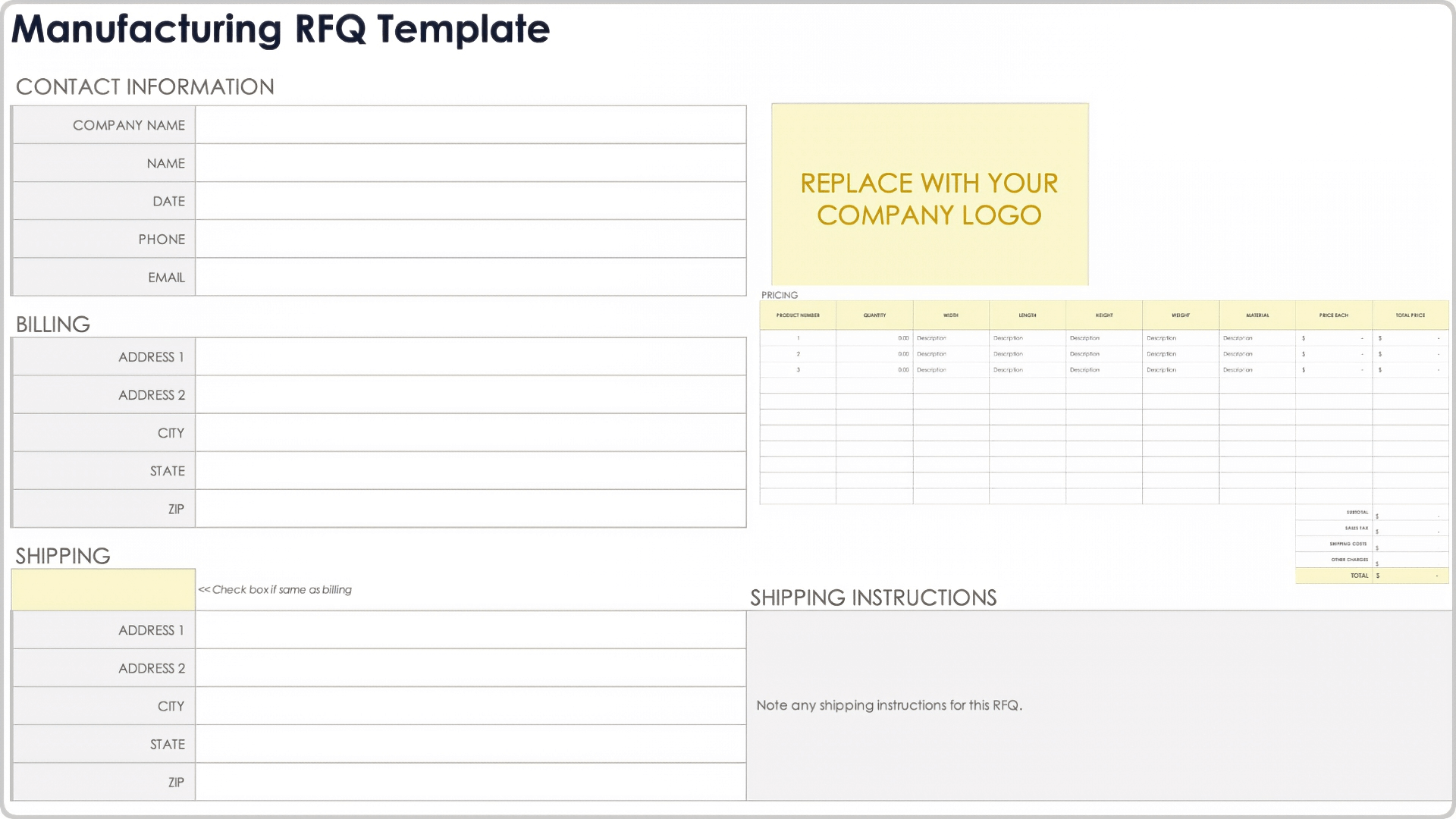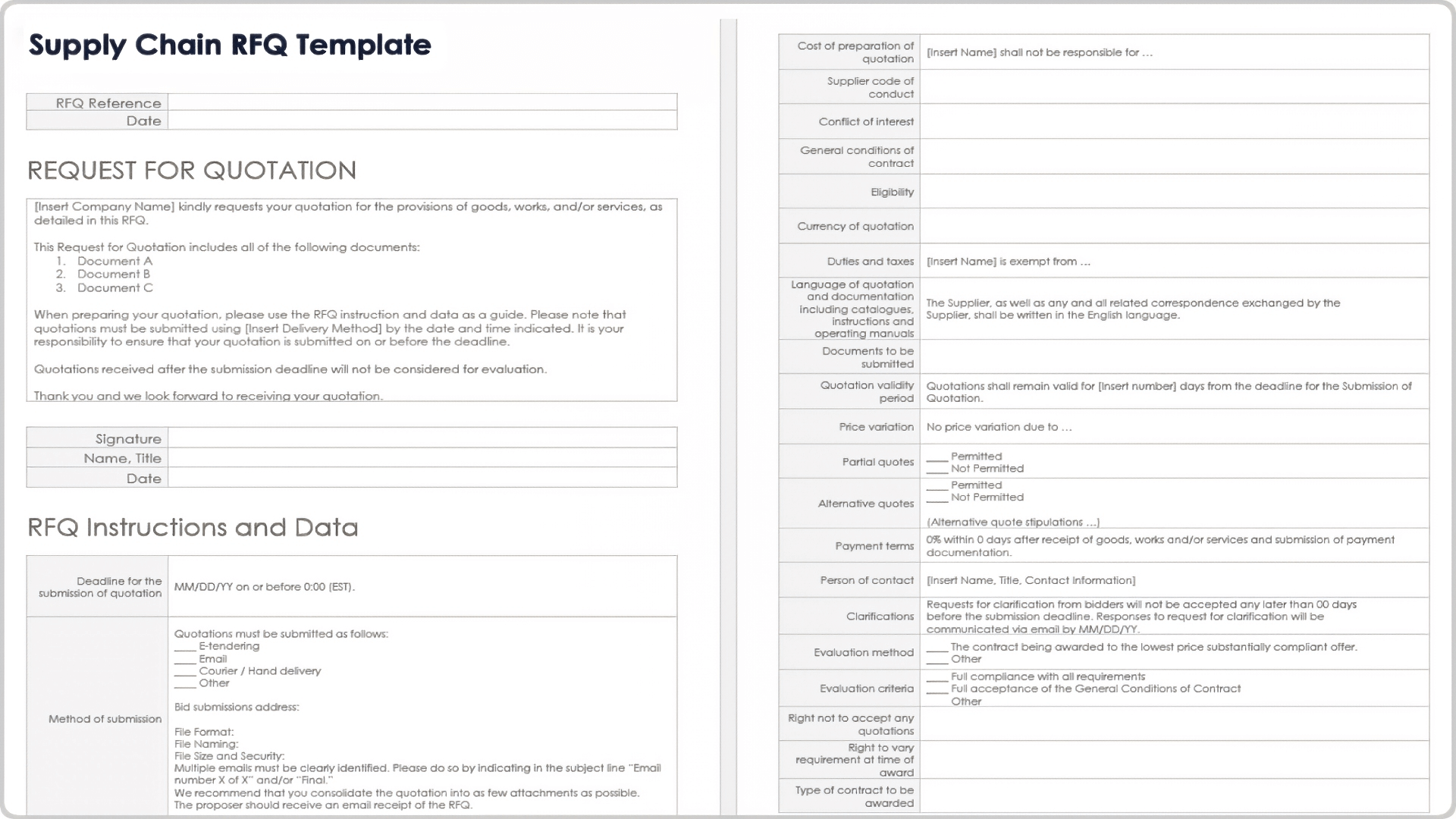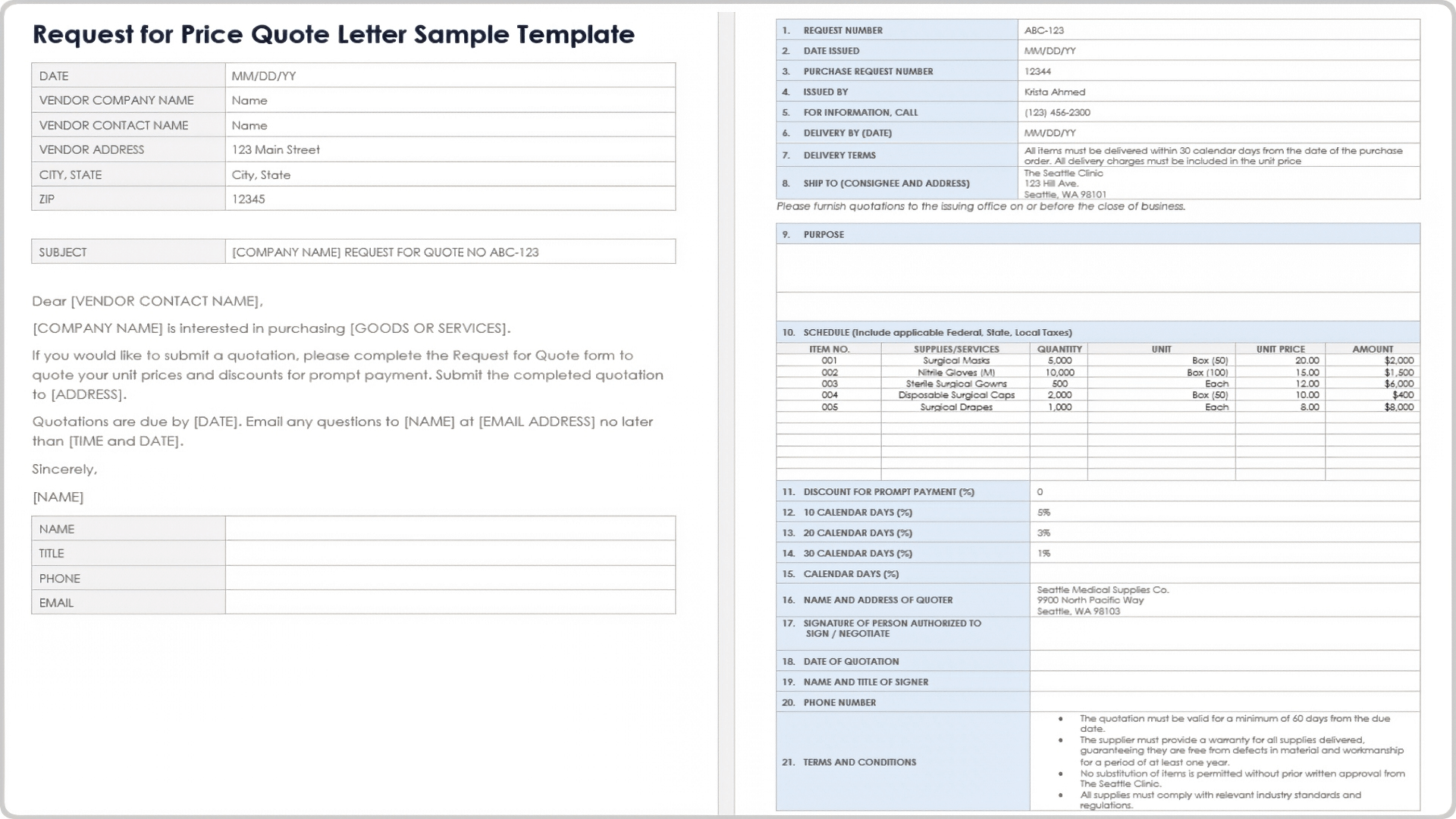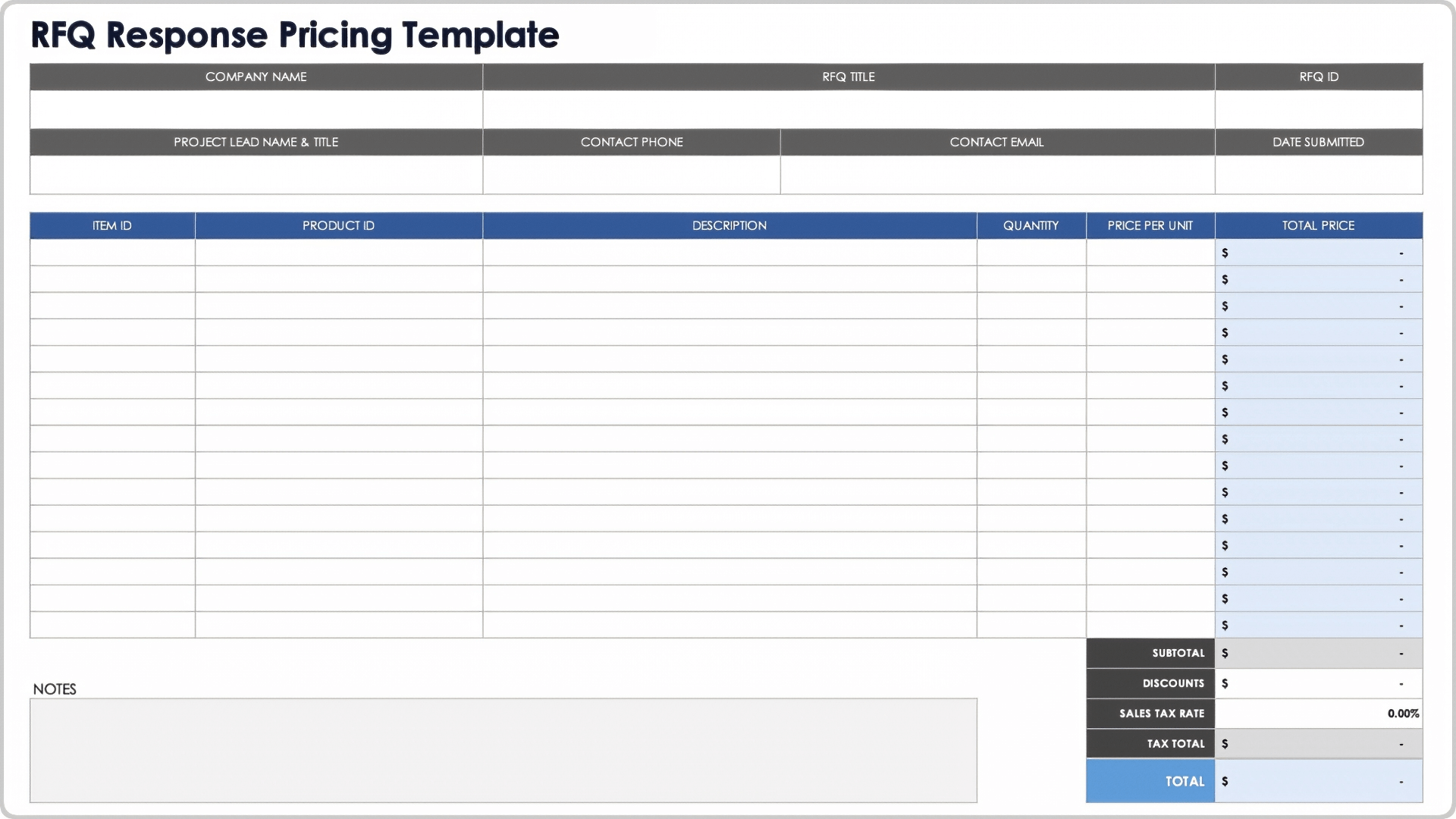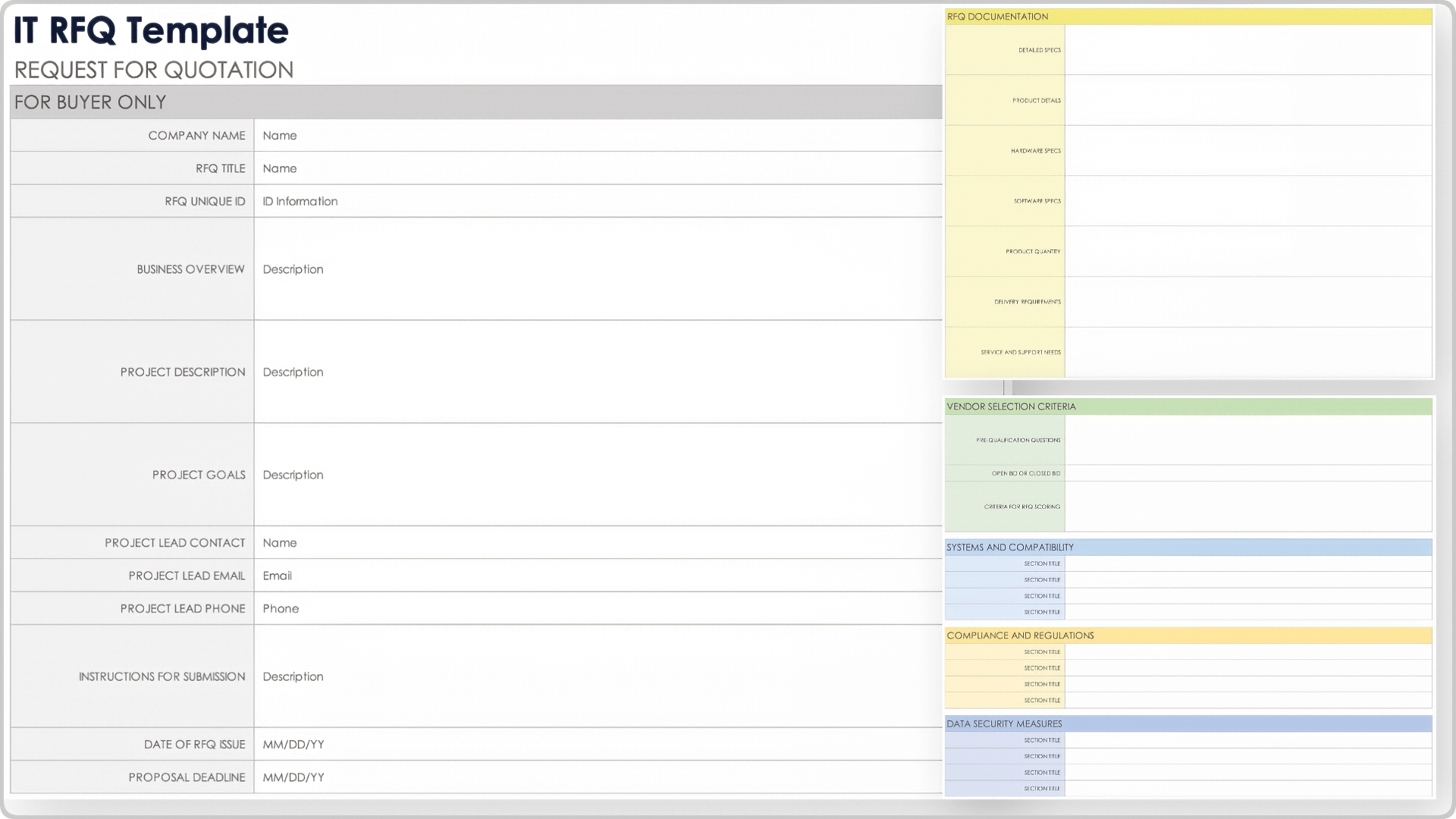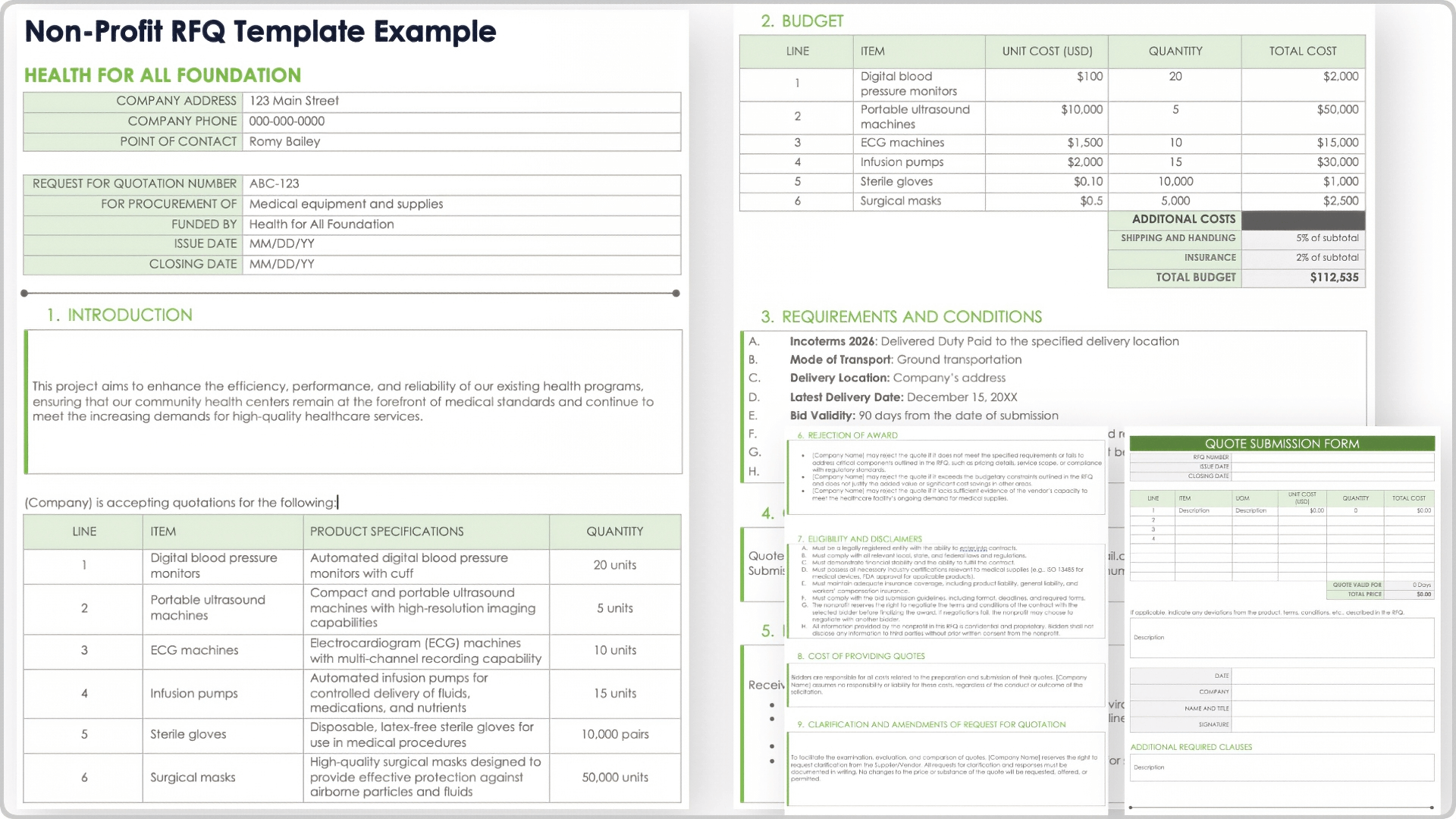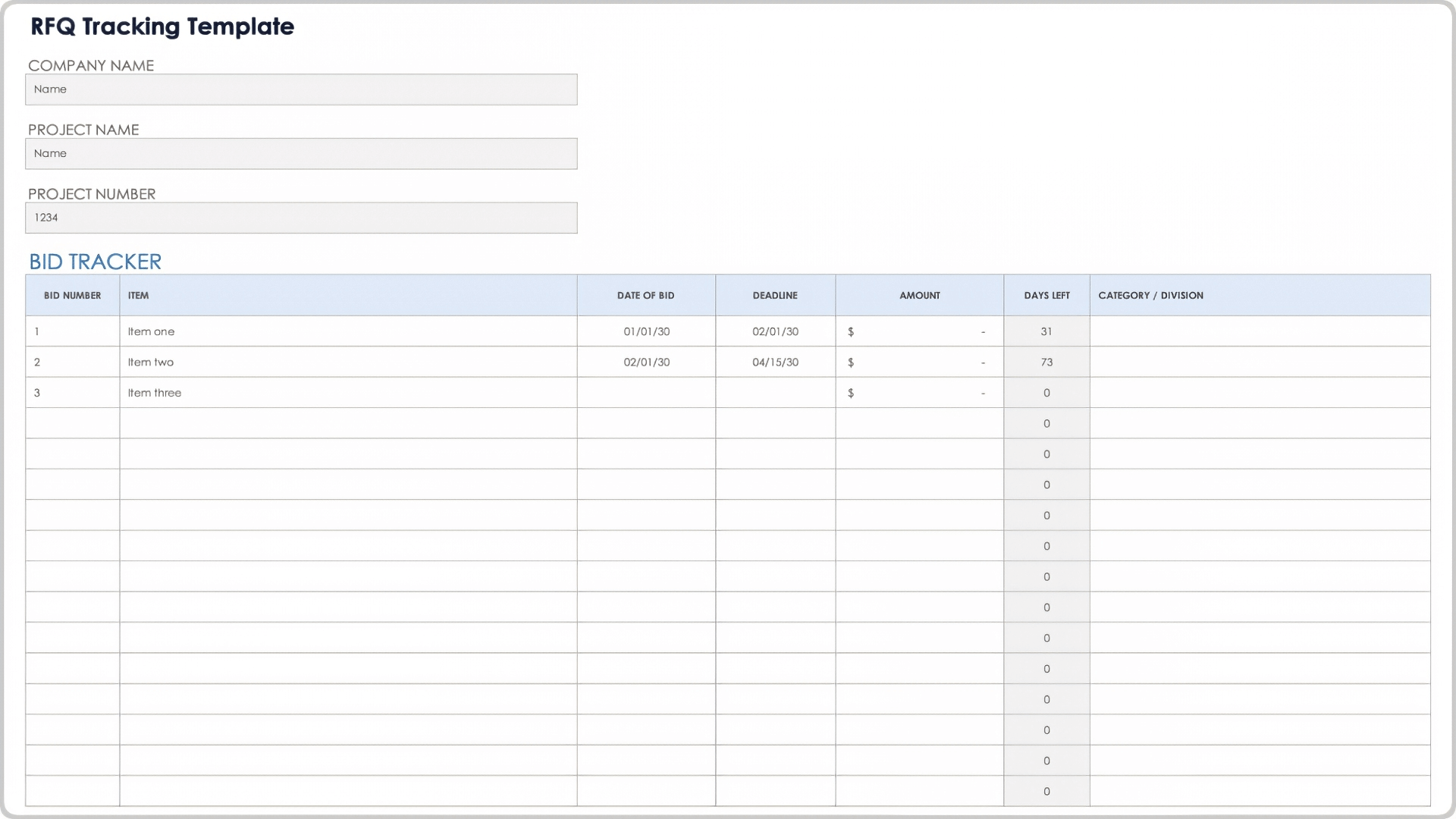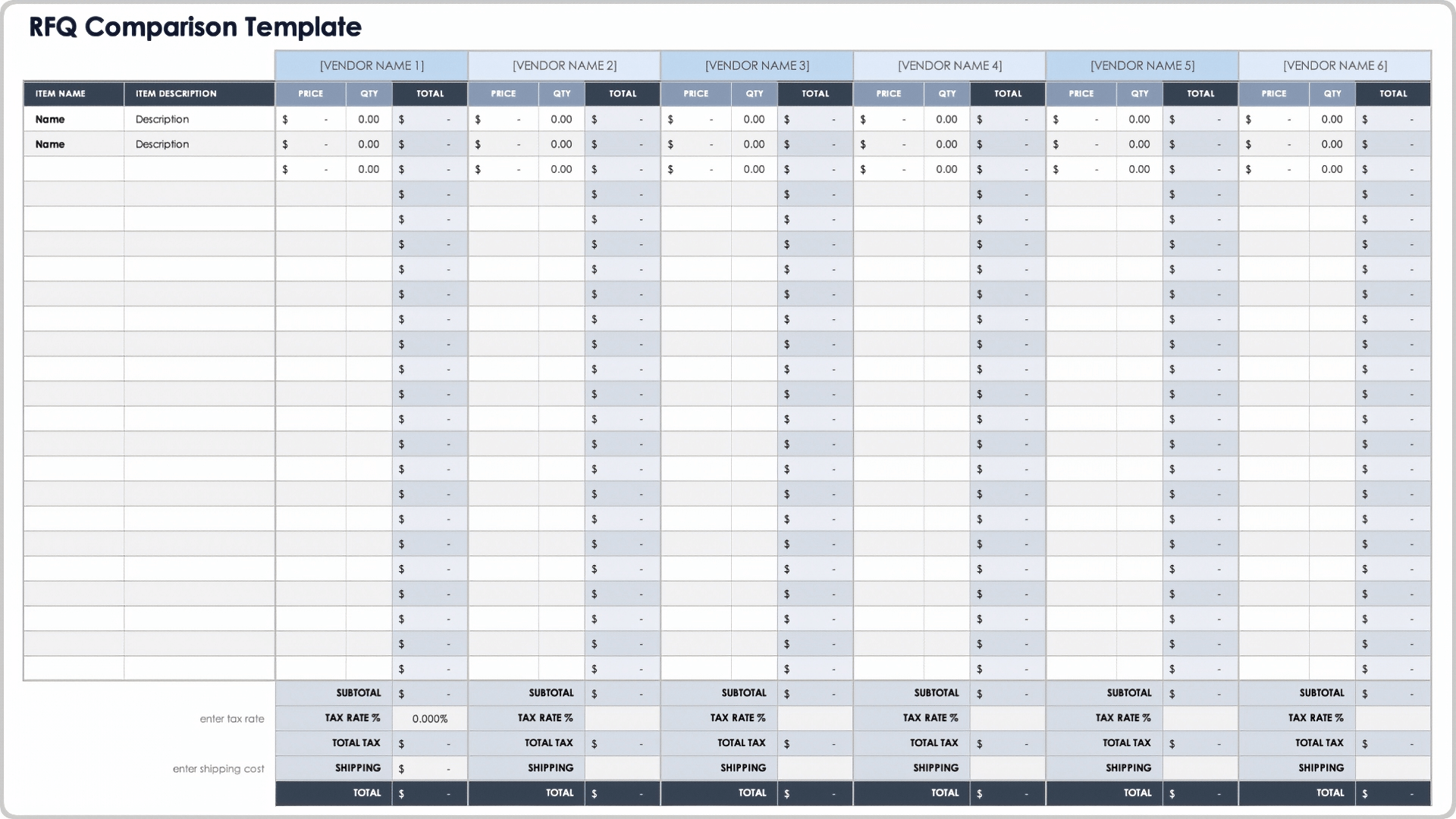How to Write an RFQ
When writing an RFQ, begin by determining the project’s required goods or services. Next, research and identify potential vendors, determine the date by which you need the goods or services, and create the RFQ and supporting documents. Finally, send the RFQ and sign a contract with the winning vendor.
Read this RFQ process guide to learn more about how to write and respond to an RFQ.
Elements Included in an RFQ
An effective RFQ should include specific elements that enable vendors to provide the necessary information for price negotiations, allowing buyers to make cost-effective procurement decisions. Always include the issuing company’s name and contact details so that vendors know who is requesting the quote.
Incorporate the following elements in your RFQ to streamline the bidding process:
- Vendor Details: Add the company name and contact details.
- RFQ Number: Enter the number for your RFQ.
- RFQ Sent Date: Include the date you sent the RFQ to vendors.
- Submission Response Deadline: Set a due date for the RFQ.
- Project Overview: Include the purpose statement, goals, objectives, and scope of work. Add any relevant background information and a timeline.
- Specifications: Add descriptions of goods or services, technical specifications, quantities, and pricing (specified per hour or per unit).
- Delivery Requirements: Include the timeline for delivering goods or services, the shipping method, and the packaging requirements.
- Submission Instructions: Explain how a vendor should submit their quote and the required format (PDF, hard copy, etc.).
- Evaluation Criteria: Explain what factors are considered in the vendor selection process and how the vendor will be chosen.
- Terms and Conditions: Include payment terms, shipping terms, warranties, legal requirements, and clauses.
- Vendor Qualifications: The vendor will add their experience and references.
Learn what you need to succeed in the RFQ process to ensure you get the best price for your project’s goods or services, as well as a vendor that meets your project needs.
Types of RFQ templates
RFQs vary based on the industry and project requirements. For example, construction RFQs often use a table format detailing building materials, equipment, and timelines, while IT RFQs use a narrative format to emphasize technical specifications and data compatibility.
Review these RFQ templates to choose the best fit for your organization’s industry and project needs.
- Basic RFQ Templates: These templates are simple and straightforward. Designed to be compatible with any industry, they cover the essential elements to procure a quote from a supplier. From submittal instructions and offeror information to pricing details and terms and conditions, these templates provide a foundational framework that can be customized for any project.
- IT RFQ Templates: Tailored for the IT industry, these templates focus on requirements, system compatibility, and security measures. They include sections for describing product specs, vendor selection criteria, compliance and regulations, and data security measures. These templates are ideal for software development projects, cybersecurity projects, IT services, and system implementation.
- Manufacturing RFQ Templates: Specifically designed for manufacturing projects, these templates outline the project’s scope and objectives, and they include delivery details, a crucial section when transporting manufactured goods. These templates include columns for the products’ dimensions and weight, providing the supplier with essential details for quoting prices accurately.
- Construction RFQ Templates: These templates are specifically designed for quoting the price of materials, equipment, and labor. They not only provide pricing details but also showcase the bidder's qualifications and experience. Whether building a new structure or renovating an existing space, these templates help compare costs and ensure quality standards are met.
- Government Agency RFQ Templates: Customized for government agencies, these templates focus on pricing, requirements, compliance, transparency, and sustainability. They include sections for management reporting, government considerations and responsibilities, and compliance clauses. These templates are ideal for projects that involve public safety, parks and recreation, public housing, and public infrastructure.
- Bid RFQ Templates: When collecting RFQs, choose the bid type that best aligns with your organization's needs and project goals. An open bid allows anyone to submit proposals, and all bids are visible. A sealed bid involves opening all proposals at a specific time, with competitors unable to view them until they are opened. An invited bid is sent only to pre-selected vendors. In a reverse auction, the buyer seeks the lowest bid, and bidders can view and adjust their quotes based on competing offers.
- Service RFQ Templates: These templates help businesses make informed decisions when selecting vendors for long-term or critical business functions. They consider factors more than price, such as the vendor's experience, methodology, approach to the service, and ability to meet specific requirements. They are perfect for projects that involve ongoing work or complex services.
For more RFQ templates in specific formats, check out these collections of Microsoft Word RFQ templates, Excel RFQ templates, and Adobe PDF RFQ templates.
RFQ Related Templates
There are many components to the bidding and procurement process when choosing a vendor that meets your project needs and budget. Check out these related customizable RFQ templates to ensure your procurement process is streamlined and efficient.
RFP Template
Use a request for proposal (RFP) template when you need more than pricing information from a vendor, such as creative solutions, implementation plans, and post-delivery support.
RFI Template
Use a request for information (RFI) template to collect product or service details from suppliers, allowing you to compare and decide which one is the best fit for partnering on a project.
Vendor Assessment Template
Use a vendor assessment template to determine if vendors can meet your organization’s standards and expectations.
SOW Template
Use a statement of work (SOW) template to outline project specifications including the scope, deliverables, milestones, schedule, and payment terms.
